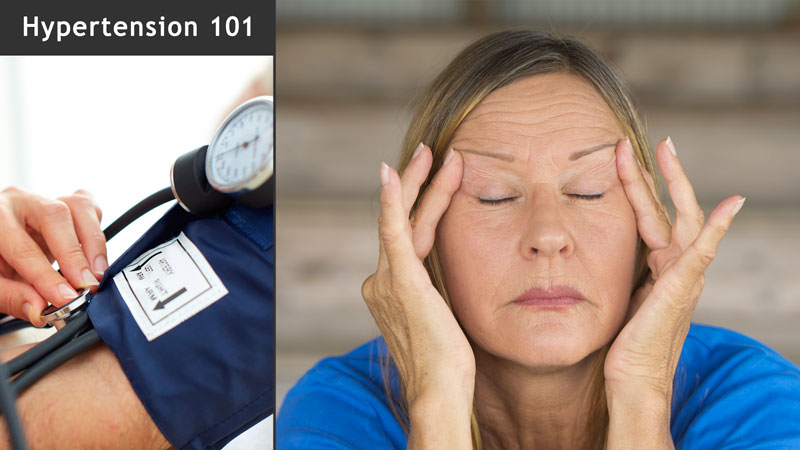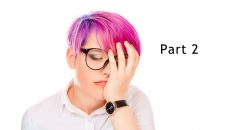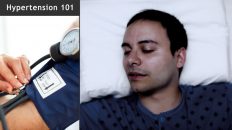By Marc Braman, MD, MPH
Marc Braman(MD, MPH):
Stress and emotions, and high blood pressure. Now we touched early on in the introduction, explaining how the nervous system is an integral part of regulating our blood pressure. It’s very, very important the direct connections, where the wires go directly to the plumbing, or blood vessels, and the connection through adrenal glands, where the wires activate stress hormones, but then flood the rest of our system, and work on a chemical level. The problem is, we often get stuck in this fight or flight stress mode with our nervous system, and it’s just constantly pointing out these signals that the vascular system and the rest of the body just can’t cope with on an ongoing basis. Now as we understand stress and its affect on blood pressure, we need to be clear we’re not using the scientific good and bad stress, we’re talking about just the general use of the term stress, which means the bad stuff.
Things that have a negative affect on us, that leaves us feeling emotionally uptight, tense. Do I need to run? Do I need to fly? Do I need to fight? Kinds of things. It’s important to understand that stressors are not the same, they’re not the equivalent of stress. Stress is what we experience, a stressor is just the environment that we’re dealing with. And the negative stress emotion is largely a matter what creates this emotional stress is how we deal with, relate to process, what meaning we apply to the stressors. Which means we have actually a lot of control over this process which is very good news. Okay, what does the data show? What is the relationship between stress or negative emotions and high blood pressure? Okay, at the population level, increased anxiety is associated with an increased risk of hypertension. Job stress, a lot of us experience that in different ways and for different reasons.
For the average person, elevates blood pressure about seven points on top, three points on the bottom. Clinically I’ve had a fair amount of patients whose high blood pressure is definitely associated with their jobs, and it comes down when they get out of that job. It is a very real thing. Now, coming down a little bit further, people with a high level of hostility. That is associated with an 84% increased risk of developing high blood pressure later, compared to the people with low hostility. Which gets into our attitudes and our patterns of being, the way we relate to the stressors, the way we relate to the world. Similarly, those with high time urgency, I think us doctors and dentists can relate to that in particular on the rigid schedules. 84% again, increased risk of developing high blood pressure compared to those with low time urgency.
These emotional stress related things are very real. Now, if we look at this like we’re a giant neuron, stress is this emotional, physical phenomena which largely comes from the mental, how we process the things in our environment that are going on, that we have to deal with. And then the emotions that we generate from that, the choices that we make and so forth, which then has its physical consequences in our being uptight or blood pressure going up. Maybe we’re sweating, maybe we’ve got a neck ache or back ache and all of that. What gets interesting, a lot of this originates in the who of the neuron model. Who we are at our core. How we understand out place in the world if you will. So what does this mean in terms of management? We need to bring down the nervous system stimulation of the fight or flight, we need to manage our nervous system and the two branches, the stress and the heal and repair.
We need to bring down the stress activation signals and up the signal and frequency on the heal repair system. Sympathetic, parasympathetic are the medical terms. There are many healthy lifestyle practices that help with this balance. Exercise, sleep, nature, healing sounds, many things. That’s good news. So here’s a very important tip, there’s something called Locus of Control, in other words, what controls your state of being? And this is really key and comes down to a who issue. Who are you in your existence in the world? What is your place, what is your relationship? Because whether or not you think and function like you have control over who you are and your mental process and your emotions and then your physical, or not, will have a huge effect on the stress that you experience and the physical consequences of that.
People who think that the world is stressors, are directly in control of them and their state of mind, that’s a really rough existence, and you often need the pills and the potions just to cope. Versus, “Oh, I’m an individual, I have choices. I an relate to those stressors differently, I can apply different meanings to them. I can choose to a large degree, what emotions I’m going to experience or not, and the physical benefit or consequences, good or bad.” Hopefully in this case good. Very good news, important, practical tip in practice. And we would be remiss if we didn’t include the physical stresses. Yes, physical stress does affect our stress state too. Pain, chronic pain definitely. But the whole whole person approach of lifestyle medicine, understanding how we really work, how we tick, and how we can manage our nervous system. Driving health and disease, ideally for health, is pretty amazing and very, very good news.
The ‘neuroadrenergic hypothesis’ in hypertension: current evidence. Grassi G, Seravalle G, Quarti-Trevano F. Exp Physiol. 2010 May;95(5):581-6. doi: 10.1113/expphysiol.2009.047381.
Psychological predictors of hypertension in the Framingham Study. Is there tension in hypertension? Markovitz JH, Matthews KA, Kannel WB, Cobb JL, D’Agostino RB. JAMA. 1993 Nov 24;270(20):2439-43.
Relation between job strain, alcohol, and ambulatory blood pressure. Schnall PL, Schwartz JE, Landsbergis PA, Warren K, Pickering TG. Hypertension. 1992 May;19(5):488-94.
Psychosocial factors and risk of hypertension: the Coronary Artery Risk Development in Young Adults (CARDIA) study. Yan LL, Liu K, Matthews KA, Daviglus ML, Ferguson TF, Kiefe CI. JAMA. 2003 Oct 22;290(16):2138-48.





